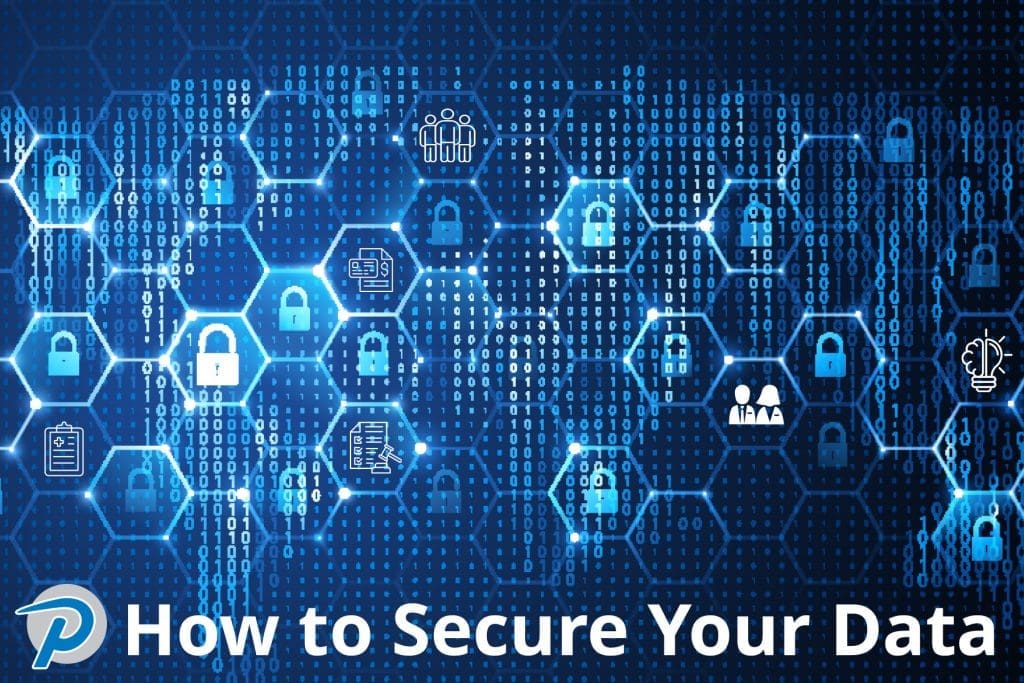

Now that you’ve identified your data vulnerabilities, you know what you need to protect from bad actors. The next step is learning how to secure your data. Here are essential steps that create a foundation for a robust data security posture.
- Educate Your Employees: Your employees are your first line of defense against cyber attacks. Educate them about the importance of data security and train them on best practices for handling sensitive information. Teach them how to recognize phishing emails, suspicious websites, and other common tactics used by cybercriminals to gain unauthorized access to data.
- Implement Strong Password Policies: Weak passwords are a significant vulnerability that cybercriminals often exploit. Encourage your employees to use strong, complex passwords and consider implementing multi-factor authentication for an added layer of security. Regularly remind employees to update their passwords and avoid using the same password for multiple accounts.
- Secure Your Network: Ensure that your network infrastructure is secure by using firewalls, encryption, and virtual private networks (VPNs). Regularly update your network devices and software to patch any vulnerabilities that could be exploited by cyber attackers. Consider hiring a professional IT provider to assess and strengthen your network security measures.
- Encrypt Sensitive Data: Encrypting sensitive data ensures that even if it falls into the wrong hands, it remains unreadable and unusable. Implement encryption protocols for both data at rest (stored data) and data in transit (data being transferred between devices or networks). This adds an extra layer of protection, especially when storing or transmitting sensitive information such as customer data or financial records.
- Backup Your Data Regularly: Data loss can occur due to various reasons, including cyber attacks, hardware failure, or human error. Regularly backup your data to secure offsite locations or cloud storage services. This ensures that even if your primary data is compromised, you can restore it from backups and minimize downtime for your business operations.
- Update Software and Systems: Cybercriminals often exploit vulnerabilities in outdated software and operating systems. Regularly update your software, applications, and operating systems to the latest versions to patch any known security vulnerabilities. Consider enabling automatic updates to ensure that your systems are always protected against the latest threats.
- Limit Access to Data: Not all employees need access to sensitive data. Implement role-based access controls to restrict access to sensitive information only to authorized personnel. Regularly review and update user permissions to ensure that employees have access only to the data necessary for their job responsibilities.
- Monitor and Audit Your Systems: Implement monitoring tools and conduct regular audits of your systems to detect any unauthorized access or unusual activity. Set up alerts for suspicious behavior and investigate any potential security incidents promptly. The sooner you detect and respond to security threats, the better you can mitigate their impact on your business.
- Create a Response Plan: Despite your best efforts, data breaches may still occur. Create a comprehensive incident response plan outlining the steps to take in the event of a security breach. Assign roles and responsibilities to key personnel, establish communication protocols, and practice incident response drills regularly to ensure preparedness.
- Stay Informed and Adapt: The cybersecurity landscape is constantly evolving, with new threats emerging regularly. Stay informed about the latest cybersecurity trends, threats, and best practices. Continuously assess and adapt your data security measures to address evolving threats and protect your small business effectively.
By following these essential steps, you can significantly enhance the security of your small business data and minimize the risk of falling victim to data-related cyber attacks. Remember, investing in data security is not only crucial for protecting your business and reputation but also for building trust with your customers and partners. We can help.
